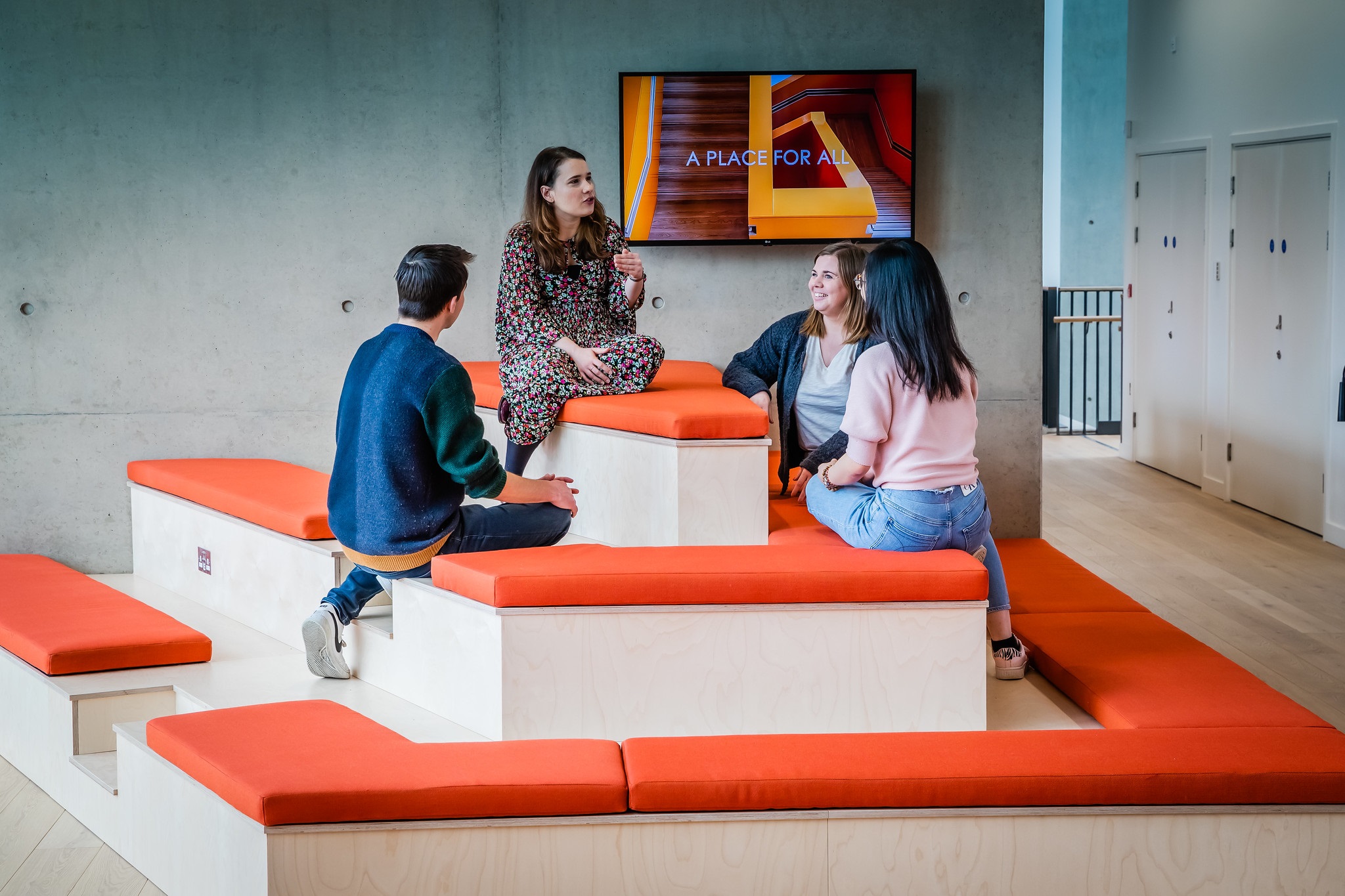Application deadline
All applicants for this course must apply via UCAS by 14 January 2026 (6pm UK time).
Typical offers require
120 UCAS Tariff Points:
- academic points only
- no specific subjects are needed
Use the UCAS Tariff Points Calculator to check that your grades meet the required level.
Check the information on this page for a list of qualifications that we accept.
You will also need to show that you meet our eligibility requirements before you are considered.
Qualifications
Before applying, you need to check that you have, or are likely to achieve, the right grades in suitable qualifications.
The Cambridge Foundation Year uses UCAS Tariff Points for admissions.
Accepted qualifications
- A levels and A levels combined with other qualifications (listed below)
- International Baccalaureate Diploma Programme (IBDP), the UCAS Tariff value is calculated based on points from 3 Higher Level subjects and the Extended Essay or Reflective Project component.
- The International Baccalaureate Career-related Programme (IBCP), the UCAS Tariff value is calculated based on points from Higher Level subjects and the career-related study component.
- Access to HE Diploma
- The Cambridge Pre-U
- Scottish Highers, Advanced Highers and a combination of Highers and Advanced Highers. You can also combine these with other qualifications.
- If you are taking 3 or more Advanced Highers: 120 UCAS Points from your best 3 Advanced Highers.
- If you are taking one or 2 Advanced Highers with Highers: 120 UCAS Points from your Advanced Highers and your best 2 or 3 Highers.
- If you are not taking Advanced Highers: 120 UCAS Points from your best 5 Highers.
- Welsh Baccalaureate - the A levels part of the Advanced Diploma is accepted. You can use the Advanced Skills Challenge Certificate, combined with other qualifications, to meet the UCAS tariff.
BTECs, Applied General and other Level 3 qualifications are generally accepted. But, there are some restrictions:
- Qualifications must be Level 3.
- Certificates, Diplomas and Subsidiary Diplomas are accepted alongside additional qualifications to meet the UCAS Tariff. For example, you could complete more than one BTEC or a combination of the BTEC with other qualifications (such as A levels).
- Extended Diplomas are accepted. But we don't accept those that are vocational in focus. Vocationally oriented subjects include Hospitality, Public Services, Sport, Aviation Operations, Dental Technology, and Floristry etc.
Voluntary Qualifications or Awards are not considered appropriate preparation for this course and should not be included in your UCAS Tariff Points calculation.
Extended Project Qualification (EPQ), Core Maths, AS Levels, Advanced Skills Challenge Certificate: While we welcome the completion of these qualifications as preparation for higher level study, they cannot be used towards the UCAS Tariff Points for this course.
Qualifications that we may consider
- T-Levels in a subject relevant to the Foundation Year subjects. For example, we would consider applicants studying education and childcare, legal services, science, healthcare science, and agriculture, land management and production.
If your qualification isn't listed
If you are unsure whether your qualifications meet our entry requirements contact us. Email foundation.year@admin.cam.ac.uk before the application deadline. Give information about your qualification type and level.
Previous Higher Education study
We do not accept applicants who have already completed study to FHEQ Level 6 or above (a Bachelor’s degree or higher).
Those with grave extenuating circumstances, such as refugees or asylum seekers, who have studied to FHEQ Level 6 may be considered.
If you believe your circumstances mean you should be considered, contact foundation.year@admin.cam.ac.uk before applying.
We don't usually consider applications from:
- students enrolled at other UK universities
- applicants who have already completed a Foundation Year elsewhere
If you have exceptional circumstances or you are changing subject, your application may be considered. We would need a letter of support from your current institution, if you are currently enrolled elsewhere.
We welcome applicants who have undertaken some HE-level study. For example, life-long learning programmes. If this applies to you, get in touch providing full details of:
- your Level 3 qualifications (for example A levels)
- when you took those qualifications
- what courses and modules you studied at HE-level, including how they were graded and assessed
English language requirements
If your first language isn’t English, your English language skills must be good enough for you to take the course.
Throughout the admissions process, we will assess your English language skills and your academic ability. Check our English language requirements for details.
Qualifications from outside of the UK
The Cambridge Foundation Year is for applicants ordinarily resident in the UK. But, we appreciate some applicants may have completed their studies outside of the UK.
If this is the case, we advise you to check if your qualification is listed in the UCAS Tariff Calculator.
If it is not listed, you are welcome to contact us at foundation.year@admin.cam.ac.uk. In your email, please provide:
- the qualification’s full title
- the country in which you studied
- the grade(s) you achieved
Re-sits
We recognise that even the best students can have 'bad days' when an exam doesn’t quite go to plan. Therefore, we’re not concerned if an applicant has retaken or is planning to retake a few modular units where the results obtained are out of character.
A higher number of retakes would also be acceptable if justified by circumstances beyond your control. Your circumstances would need to be made clear in your application (reference and Extenuating Circumstances Form).
Admission assessment
If shortlisted for interview, you will need to take a written assessment. You will be given details in your interview invitation.
You do not need to register for the Foundation Year admission assessment. There are no charges.
Find out more and access a sample paper from the Foundation Year website.

